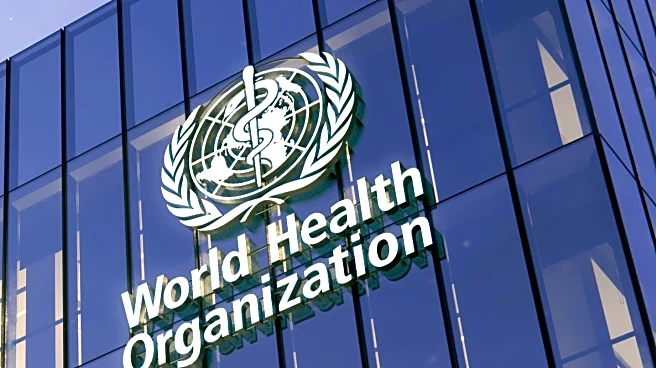What's Happening?
The rise of wellness influencers on social media platforms like TikTok, YouTube, and Instagram is reshaping how health advice is consumed by the public. These influencers often promote wellness products
and rituals that claim to improve various aspects of health, from physical fitness to mental well-being. However, many of these influencers lack medical credentials, leading to concerns about the spread of misinformation. The Federal Trade Commission mandates disclosure of any relationship between influencers and brands, yet the allure of easy solutions to complex health issues continues to draw in audiences. This trend is compounded by a decline in trust in traditional medical institutions, exacerbated by factors such as the COVID-19 pandemic and historical scandals in the pharmaceutical industry.
Why It's Important?
The influence of wellness influencers has significant implications for public health. As more individuals turn to social media for health advice, the risk of misinformation increases, potentially leading to harmful health decisions. This is particularly concerning given the barriers many Americans face in accessing primary care, with over 100 million people experiencing difficulties. The spread of misinformation can result in individuals forgoing evidence-based treatments in favor of unproven methods, which can have dire consequences. Additionally, the wellness industry, a multitrillion-dollar sector, continues to grow, driven by consumer demand for control over personal health. This shift highlights the need for improved digital literacy and critical evaluation of online health information.
What's Next?
Efforts are underway to combat health misinformation online. Initiatives like the World Health Organization's Fides network aim to provide evidence-based health content through social media, leveraging the same platforms used by influencers. Training courses and campaigns are being developed to enhance the reach and impact of credible health information. Meanwhile, tech companies are being urged to implement stronger policies to identify and mitigate misinformation. As the shortage of primary care physicians is projected to worsen, particularly in non-metro areas, the reliance on digital health advice is likely to increase. This underscores the importance of fostering trust in accredited health professionals and ensuring access to reliable health information.
Beyond the Headlines
The ethical implications of wellness influencers' impact on public health are profound. The commercialization of health advice raises questions about the motivations behind influencer content and the potential conflicts of interest. As influencers capitalize on their platforms, the line between genuine health advocacy and profit-driven promotion becomes blurred. This dynamic challenges traditional notions of medical authority and highlights the need for transparency and accountability in health communication. Furthermore, the cultural shift towards self-managed health care reflects broader societal trends in individualism and distrust of institutional expertise, necessitating a reevaluation of how health information is disseminated and consumed.









